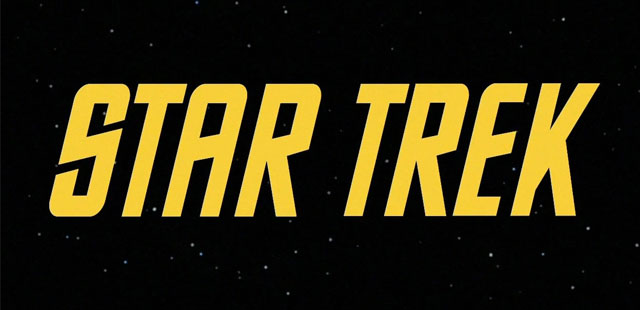
Palmer’s Trek, the unwatched frontier. These are the voyages of Agent Palmer. On his continuing mission: to explore Star Trek. To seek out its numerous series and movies. To boldly go where many fans have gone before!
It may seem hard or foolish to summarize all 79 episodes that comprise Star Trek: The Original Series into a single review, but for someone who’s watching the vast majority of it with fresh eyes for the first time, it’s easy to do.
I’m watching the origin of the form. This is where it all comes from. Gene Roddenberry was ahead of his time, and that time has now been duplicated and copied many times over that when I see some episodes in this original series, I’ve seen them before on Futurama or The Orville.
At times it may feel like cheesy science fiction but in truth, because of the influence it had on the future, it’s groundbreaking all around, no matter how you slice it. Even now, in 2023, I can forgive that cheesiness, because they had a lot less to work with as far as graphics and animation.
 The ideals of Star Trek baked into the fictional history of our then-Future Tomorrow sway from the grandly ambitious to the unintentionally ludicrous. At times, I can’t figure out which is which. In Season 1 Episode 22, “Space Seed,” the year 2018 is presented as when we learned, more or less, how to travel faster than light. Meanwhile, although it’s a bit vague, humans maybe waged a kind of Eugenics war in the 1990s? We must’ve missed that because we were too busy with troll dolls, Beanie Babies, and early internet chat rooms.
The ideals of Star Trek baked into the fictional history of our then-Future Tomorrow sway from the grandly ambitious to the unintentionally ludicrous. At times, I can’t figure out which is which. In Season 1 Episode 22, “Space Seed,” the year 2018 is presented as when we learned, more or less, how to travel faster than light. Meanwhile, although it’s a bit vague, humans maybe waged a kind of Eugenics war in the 1990s? We must’ve missed that because we were too busy with troll dolls, Beanie Babies, and early internet chat rooms.
It quickly becomes clear that Roddenberry and his collaborators wanted a better tomorrow. Who can blame them? We’re still chasing a better tomorrow from today. He used the show’s original created dates of the 1960s to form many of its themes and ideas. It’s easy to see the social and moral issues and the historical events of that era reflected in these stories. As far as drama and turmoil goes, there may not be a more interesting time in the history of America to that point.
Arising from that backdrop are episodes like Season 1 Episode 23, “A Taste of Armageddon,” a tale laden with anti-war and pro-peace messaging, or in Season 3 Episode 20, “The Way to Eden,” where we encounter the Hippies, yes with a capital H! The show is a product of its time, as it should be.
(Brief aside: in “The Way to Eden” the Hippies use the name “Herbert” as a derogatory term, someone whom they consider to be “limited in thinking.” In an era so close to the rise of “Frodo Lives,” it makes me wonder why Herbert never made it into the zeitgeist of the time, but that’s for sociologists to uncover should they choose.)
The show had other lessons, too.
Lessons in AI (artificial intelligence) in The Original Series are some that people of today would do well to revisit. In fact, for some of the Star Trek fans that other fans have told me were inspired to become engineers, where did all the lessons go? If Trek inspired people to change the face of technology to what we now take for granted today, perhaps it would be good for some of them to revisit the show. This time, perhaps they would learn some of the lessons attached to advanced technologies and artificial intelligence. Those Trek writers from yesterday were trying to tell us to be cautious as we traveled into the digital, silicon-infused, electronic future, but we appear to have missed the mark. Maybe we were distracted by other parts of the show.
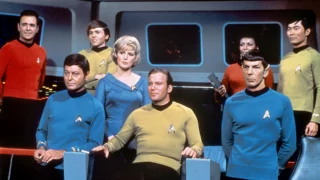 Season two also features the semi-regular “technological failure” as a problem to overcome. That’s usually more of a lesson in making sure that not only is there redundancy, and that perhaps we shouldn’t put all of our eggs in one technological basket, even when we are going Warp 2 or slower. These failures remain a constant through the rest of the series.
Season two also features the semi-regular “technological failure” as a problem to overcome. That’s usually more of a lesson in making sure that not only is there redundancy, and that perhaps we shouldn’t put all of our eggs in one technological basket, even when we are going Warp 2 or slower. These failures remain a constant through the rest of the series.
From a television perspective, it’s hard to say anything less than just how innovative Star Trek was on the whole. What stands out most impressively is the script and story for the two-part episode Menagerie, which utilized the original rejected pilot of the show featuring an Enterprise under the command of Captain Pike, and then repurposes that episode as part of a trial in which Captain Kirk and his Enterprise is involved. It is innovative and completely deserving of any praise it gets. It’s also something I wouldn’t dare attempt today, because while Star Trek did it well, it seems like the exception and not the rule.
The other thing that I love from a television point is just how episodic this original series is. You don’t need to watch from the beginning, and you don’t need to watch every episode. Miss one and you’re not done. This is a strength of the show. It’s the reason that some of the character pairings work out so well, because it’s not often repeated and it’s just experimenting with personalities.
There’s a lot of Spock vs. McCoy in the first 10 episodes of season three, far more than just friendly jibes, yet it’s probably not as noticeable on a weekly watch when compared to the binge I just undertook. While they both wear blue shirts as science officers, Spock’s logical disposition as a Vulcan appears to be naturally antagonistic towards our fair country doctor, Dr. McCoy. It’s always fairly good-natured, but when it’s found in abundance, you wonder why the jibes keep coming fast and furious. The series never makes it too personal, but I’m sure they easily could have.
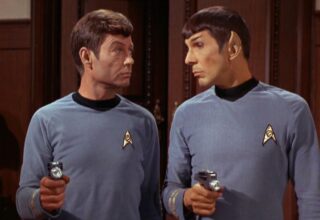 That doesn’t mean there isn’t any heart to the show. As proof, you don’t have to watch too many episodes to care about the characters, and some downright rip your heart strings even if it is your first episode. For instance, Season 2 Episode 12, “The Deadly Years,” makes great television viewing in any era, but it is heartbreaking for anyone who has been touched by Alzheimers.
That doesn’t mean there isn’t any heart to the show. As proof, you don’t have to watch too many episodes to care about the characters, and some downright rip your heart strings even if it is your first episode. For instance, Season 2 Episode 12, “The Deadly Years,” makes great television viewing in any era, but it is heartbreaking for anyone who has been touched by Alzheimers.
There are other moments, too, but that is the most personal for me, because I have dealt with Alzheimers in my family.
Moving on to other more positive things, a good portion of season two revolves around questioning Captain Kirk’s competency. This recurs a few more times in season three, but it is notable that it didn’t become a rut that writers and producers went back to often enough for it to become a true trend.
In fact, while the show’s production uses what it has at it’s disposal insofar as sets, going to the old west, meeting the mafia gangs of Chicago, or visiting ancient Rome or Egypt – you get the picture – the series stayed away from doing it so often that it became predictable. The show tried to do many things; while some are more successful than others, it’s nice to see that through all three seasons they kept trying new things.
This ties in to the characters that get coupled in different ways. Sometimes it works, sometimes it doesn’t. Perhaps it’s because the show only lasted three seasons, but the pairings don’t often repeat just for the sake of repeating. They try them, then they move on. An example later in season 3 episode 17, “That Which Survives,” kinda lapses into the “Scotty and Spock Show,” but it’s just the one episode and thankfully it isn’t repeated again. As a one-off, it’s fun for just an afternoon.
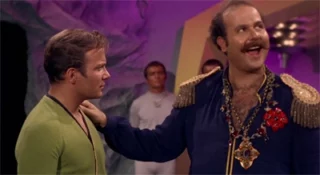 As for the crew, Captain Kirk has a solid crew both behind and before him on the Bridge. Of course I knew the characters before, but only in name. Now, I know Sulu and Chekov, Uhura, Scotty, McCoy, and Spock. And I have to mention my favorite non-crew character from the series, that of Harcourt Fenton Mudd, who I was happy to see return for a second appearance on the series.
As for the crew, Captain Kirk has a solid crew both behind and before him on the Bridge. Of course I knew the characters before, but only in name. Now, I know Sulu and Chekov, Uhura, Scotty, McCoy, and Spock. And I have to mention my favorite non-crew character from the series, that of Harcourt Fenton Mudd, who I was happy to see return for a second appearance on the series.
But this show about a ship on a mission to explore is only as good as its Captain, and James Tiberius Kirk is great. I would probably sign up to serve under him, as he remains a great example of compassionate leadership. It’s no small wonder why he’s still a fan favorite to this day.
For all his many conquests, Kirk is a lover and a fighter as it were. Star Trek still remains a show that at least portrays the universe as vastly populated by at least two genders. I know the first televised interracial kiss happened between Kirk and Uhura, but he also kissed plenty of other women from a rainbow of colors. And in an era where most aliens were Martians, and often of no gender at all, Trek gets that right, even if it falls short in portraying many more humanoids than there probably exists in the vast galaxies of space.
Still, the hopefulness of this show is amazing given the period of its writing, filming, and first release. It’s a part of television and pop culture history and it definitely deserves to be revisited in its original form, much more often than it currently is, for its innovation, messaging, optimism, and creativity.
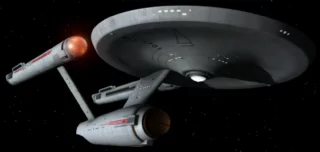 It may be many decades old, but it’s still the most positive piece of media I’ve consumed in a long time, and yet its also the most wholesome thing I’ve watched recently as well. To viewers of today, though at times it seems unwarranted, that kind of optimism is supremely welcomed. Where did it go?
It may be many decades old, but it’s still the most positive piece of media I’ve consumed in a long time, and yet its also the most wholesome thing I’ve watched recently as well. To viewers of today, though at times it seems unwarranted, that kind of optimism is supremely welcomed. Where did it go?
But let’s move on to some lists… My favorite episodes in no particular order were:
Palmer’s Top TOS Eps
- S1E5: The Enemy Within
- S1E7: What Are Little Girls Made of?
- S1E8: Miri
- S1E11-12: The Menagerie Parts I and II
- S1E14: Balance of Terror
- S1E19: Tomorrow is Yesterday
- S1E23: A Taste of Armageddon
- S1E28: The City on the Edge of Forever
- S2E3: The Changeling
- S2E24: The Ultimate Computer
- S2E26: Assignment: Earth
- S3E10: Plato’s Stepchildren
- S3E11: Wink of an Eye
- S3E20: The Way to Eden
And my favorite quotes in no particular order were…
Palmer’s Top TOS Quotes
- KIRK: There are a million things in this universe you can have and there are a million things you can’t have. It’s no fun facing that, but that’s the way things are. – S1 Ep 3
- SPOCK: Interesting. Your Earth people glorify organised violence for forty centuries, but you imprison those who employ it privately. S1 Ep 10
- SPOCK: Insufficient facts always invites danger, Captain. S1 E23
- MCCOY: You may be controlling the pain, Mister Spock, but you’re far from all right. S1 Ep 30
- MCCOY: Talks a lot, but he doesn’t say much. S2E9
- ROBERTA: Mister Seven, I want to believe you. I do. I know this world needs help. That’s why some of my generation are kind of crazy and rebels, you know. We wonder if we’re going to be alive when we’re 30. S2E26
- SPOCK: Humans do have an amazing capacity for believing what they choose and excluding that which is painful. S3E4
- SPOCK: Change is the essential process of all existence. For instance, the people of Cheron must have once been mono-coloured. S3E15
- SPOCK: We must acknowledge once and for all that the purpose of diplomacy is to prolong a crisis. S3E16
- SPOCK: Diplomats and bureaucrats may function differently, but they achieve exactly the same results. S3E16
- ADAM: Gonna crack my knuckles and jump for joy. I got a clean bill of health from Doctor McCoy. S3E20
Live Long and Prosper. Palmer Out.